Smart Contracts Development
Smart Contracts Development involves designing, coding, and deploying self-executing programs on blockchain networks that automatically enforce and execute agreements when predefined conditions are met. These contracts eliminate the need for intermediaries, reduce human error, and enhance the security, efficiency, and transparency of transactions. By leveraging blockchain technology, smart contracts provide immutable records of every transaction, guaranteeing that actions are executed exactly as programmed without delays or manipulation. They enable a wide range of use cases, including automated payments, token issuance, NFT minting, decentralized finance (DeFi) protocols, supply chain tracking, insurance claims, and voting systems.
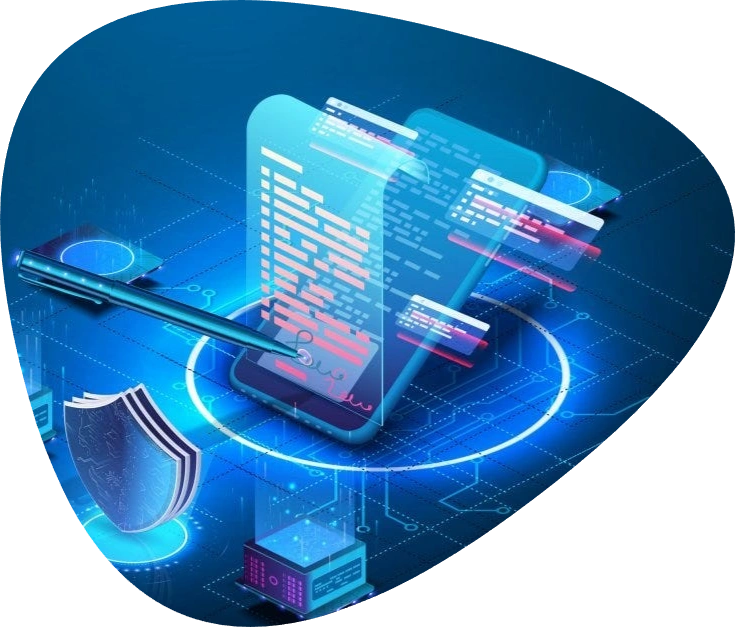

Smart Contracts Solutions – Secure, Scalable, and Efficient
Smart Contracts Solutions involve the design, development, and deployment of self-executing digital contracts on blockchain networks that automatically enforce pre-defined rules without intermediaries. These solutions enable secure, transparent, and efficient operations, reducing the risk of human error, fraud, and delays. By leveraging blockchain technology, smart contracts ensure immutable records, automatic execution, and verifiable transactions, making them ideal for industries such as finance, insurance, real estate, supply chain, gaming, and decentralized applications (DApps). With scalability in mind, these solutions support high-volume transactions and enterprise-level applications, allowing businesses to streamline processes, save costs, and enhance trust among stakeholders.
Advanced Smart Contract Framework – Secure, Efficient, and Value-Driven
The Advanced Smart Contract Framework provides a comprehensive blockchain solution for enterprises and developers to design, deploy, and manage self-executing digital contracts. These smart contracts automatically enforce pre-defined rules and agreements, eliminating intermediaries, reducing human error, and ensuring secure, transparent, and reliable operations.
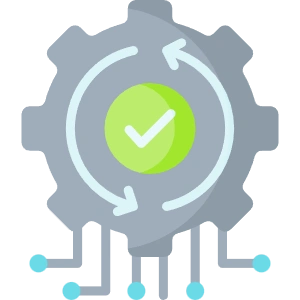
Automated Execution
Executes pre-defined business rules and agreements automatically, eliminating manual intervention and reducing operational delays.

Security & Transparency
Built on blockchain, ensuring tamper-proof, verifiable, and fully auditable transactions across all operations.
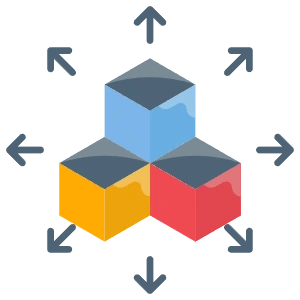
Scalable Architecture
Supports high-frequency transactions and enterprise-level applications, making it suitable for startups and large organizations alike.
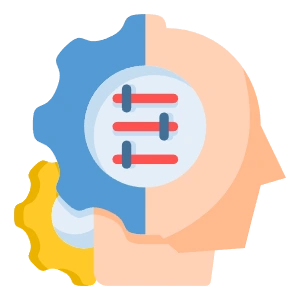
Customizable Business Logic
Tailored solutions for industries such as finance, gaming, supply chain, real estate, DeFi, and NFTs, enabling complex workflows and contracts.
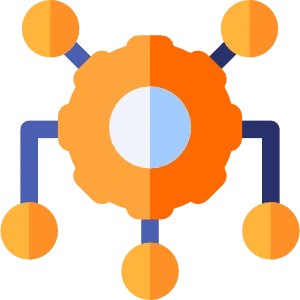
Integration & Interoperability
Compatible with existing enterprise systems, DApps, and multiple blockchain networks, ensuring seamless integration.
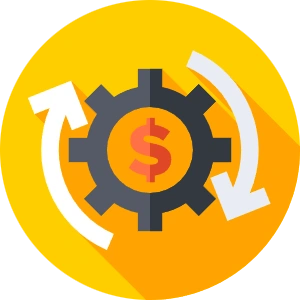
Cost-Effective Operations
Reduces the need for intermediaries, lowers transaction costs, and optimizes business efficiency and ROI.
Decentralized Contract Framework – Transparent, Automated, and Scalable
The Decentralized Contract Framework is a blockchain-powered solution that allows organizations and developers to create, deploy, and manage smart contracts in a secure, transparent, and automated manner. By leveraging the decentralized nature of blockchain, this framework ensures that agreements are executed exactly as programmed, without intermediaries, reducing human error, fraud, and delays.Designed for enterprise-scale applications, this framework supports complex business logic, high-frequency transactions, and multi-party interactions across industries such as finance, supply chain, gaming, real estate, DeFi, and NFTs. It enables full transparency, verifiable execution, and immutability, allowing stakeholders to trust the system while reducing operational overhead.
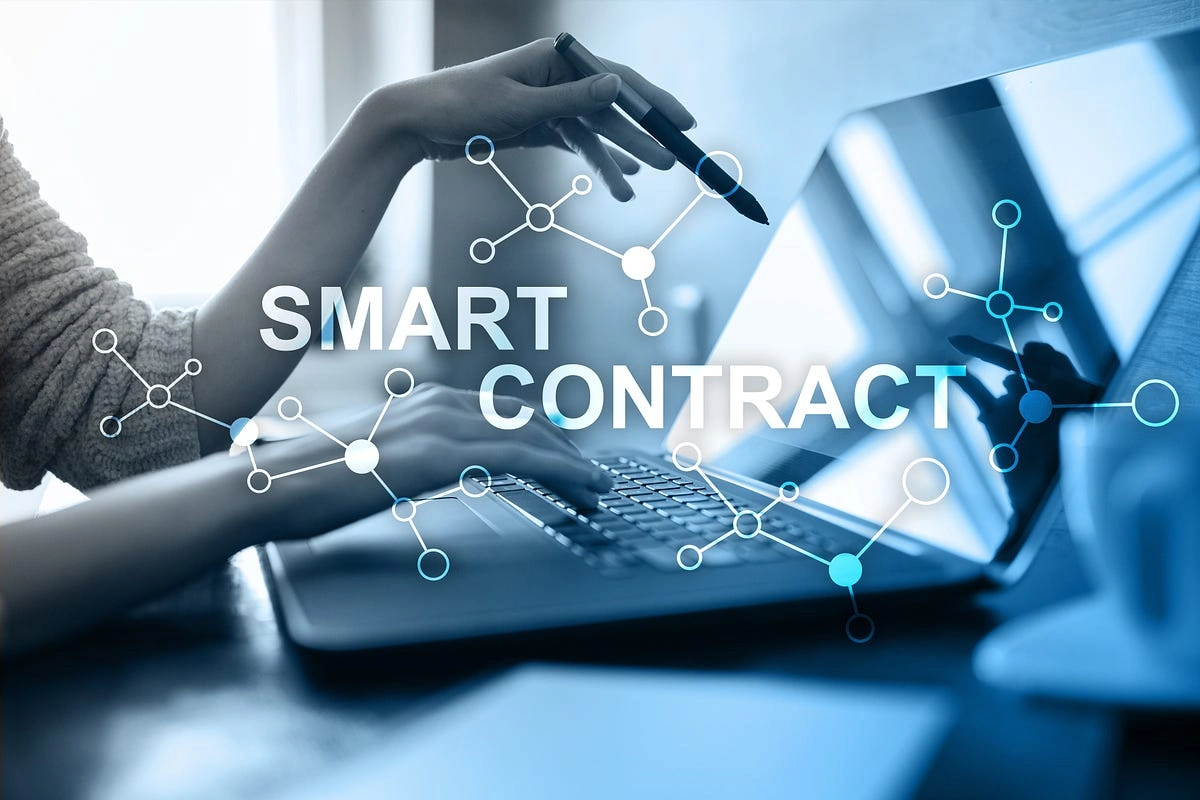
Global Smart Contract Ecosystem – Robust, Secure, and Scalable
The Global Smart Contract Ecosystem is a comprehensive blockchain platform designed to create, deploy, and manage smart contracts at a global scale. It enables businesses, developers, and enterprises to automate agreements, transactions, and workflows securely, eliminating intermediaries while ensuring transparency, immutability, and reliability.This ecosystem is robust and scalable, capable of handling high-frequency transactions, multi-party agreements, and complex business logic across industries such as finance, supply chain, DeFi, gaming, real estate, and NFT marketplaces. With smart contracts at its core, it ensures that all operations are executed automatically and verifiably, reducing human error, fraud, and operational costs.
FAQ
What is Smart Contracts Development?
Smart Contracts Development involves creating self-executing digital agreements on blockchain networks. These contracts automatically enforce predefined rules, eliminating intermediaries, reducing human error, and ensuring secure, transparent, and verifiable transactions.
How do smart contracts work?
Smart contracts work by embedding business logic into code on a blockchain. When specific conditions are met, the contract executes automatically, triggering transactions, asset transfers, or other programmed actions without manual intervention.
Which blockchain platforms support smart contracts?
Can smart contracts be customized for different industries?
Yes. Smart contracts are highly flexible and can be tailored for industries such as finance, DeFi, gaming, NFTs, supply chain, insurance, and real estate, enabling complex workflows and automated business processes.
How secure are smart contracts?
Smart contracts are secured by blockchain technology, making them tamper-proof, transparent, and auditable. However, their security depends on proper coding practices and thorough auditing to prevent vulnerabilities and exploits.
What are the benefits of smart contracts for businesses?
Businesses benefit from automation, transparency, cost reduction, and trustless execution. Smart contracts streamline operations, reduce reliance on intermediaries, and ensure accurate and timely execution of agreements.
Can smart contracts interact with external systems or applications?
Yes. Smart contracts can be integrated with enterprise systems, decentralized applications (DApps), and other blockchain protocols using APIs or oracles, enabling interaction with real-world data and broader digital ecosystems.

